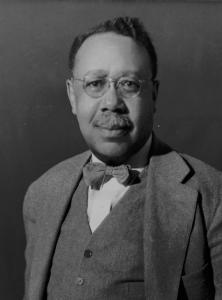1883-1959. William Augustus Hinton was born in Chicago, Illinois on December 15, 1883. After two years at the University of Kansas (1900-1902), he earned a Bachelor of Science from Harvard University in 1905. Lacking the funds for medical school, William Hinton taught at Walden University, Nashville, Tennessee, and in Langston, Oklahoma for four years. During the summer months he continued his studies in bacteriology and physiology at the University of Chicago. William Hinton entered Harvard Medical School in 1909 and earned a M.D. from Harvard Medical College (with honors) in 1912, completing his degree in only three years. (Aside: “The [Harvard] Medical School offered him a scholarship for Negro students, but Hinton refused the offer.
In competition with the entire student body he won the Wigglesworth Scholarship and the Hayden Scholarship.” Source: DNB p.315.) After graduation from Harvard Medical School in 1912, Hinton worked for the Wasserman Laboratory, which at that time was part of the Harvard Medical School. In the mornings he was a volunteer assistant tin the Department of Pathology of the Massachusetts General Hospital. At the Wasserman Laboratory, Hinton began teaching serological techniques.
Dr. Hinton served as Assistant Director of the Division of Biologic Laboratories and chief of the Wasserman Laboratory when it was transferred from Harvard to the Massachusetts Department of Public Health (1915). In 1918 he was appointed as instructor in preventive medicine and hygiene at the Harvard Medical School, while continuing his work as chief of the Wasserman Laboratory.
From 1921 to 1946 Hinton served as instructor in bacteriology and immunology at Harvard and as lecturer until 1949 when he was promoted to the ran k of clinical professor. Dr. William A. Hinton was the first black to become a professor at Harvard Medical School in its 313 years, where he taught Bacteriology for 36 years. Hinton retired in 1950 with the status of professor emeritus. Even after his retirement from Harvard he taught there for some time (Source: Boston Daily Globe, Sept. 15, 1952) and served until 1953 as physician-in-chief of the Department of Clinical Laboratories of the Boston Dispensary. He also taught at the Harvard School of Public Health, Tufts University Schools of Medicine and Dentistry, and for many years after 1919 was a lecturer at Simmons College, Boston. He was a special consultant to the U.S. Public Health Service and a consultant (1946-1949) at the Massachusetts School for Crippled Children, Boston.
Dr. Hinton is responsible for the Hinton test for syphilis, which was found to be as effective and, in some respects, superior to the Wasserman test. Dr. Hinton was responsible for the discovery of the Davies-Hinton test of blood and spinal fluid.
